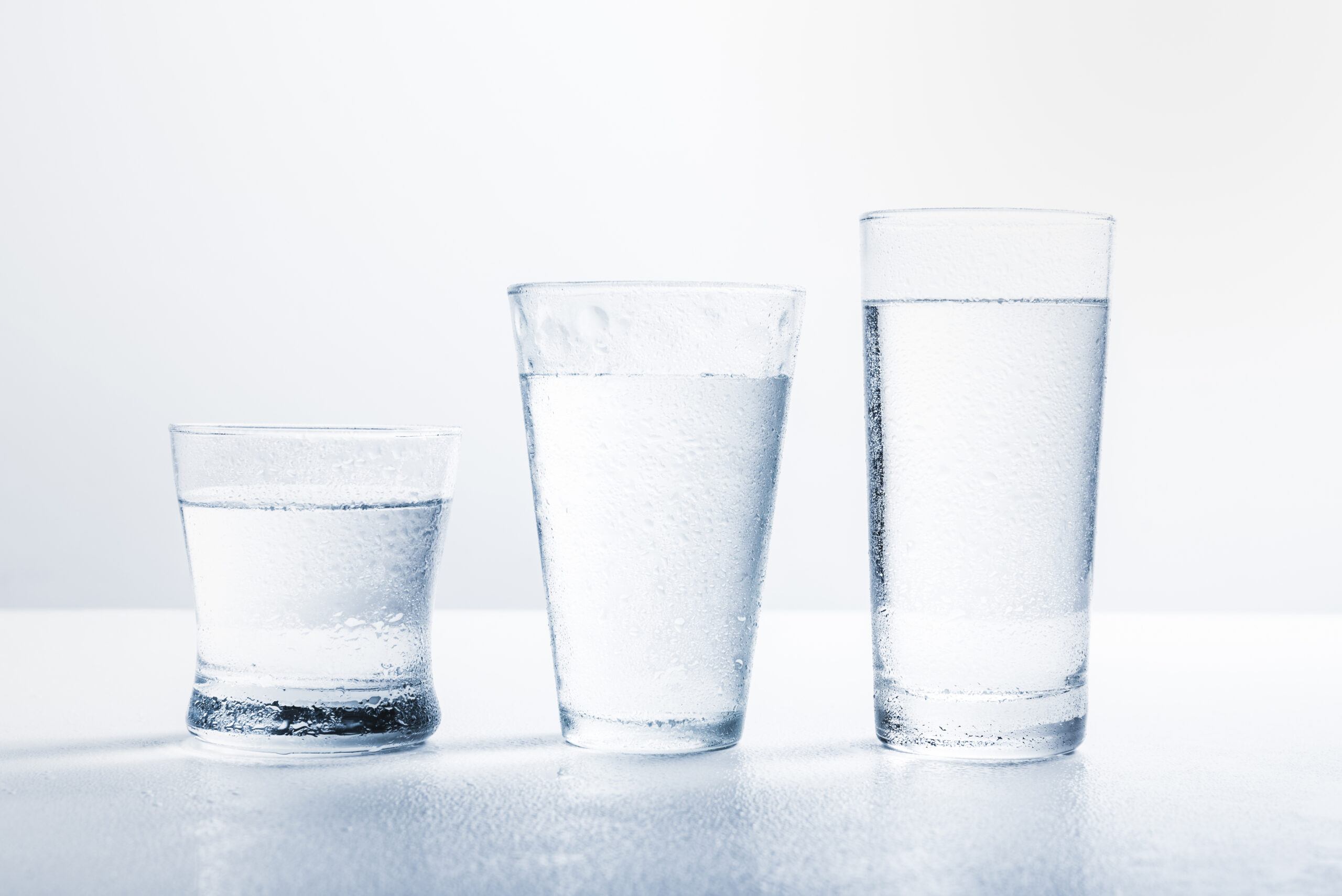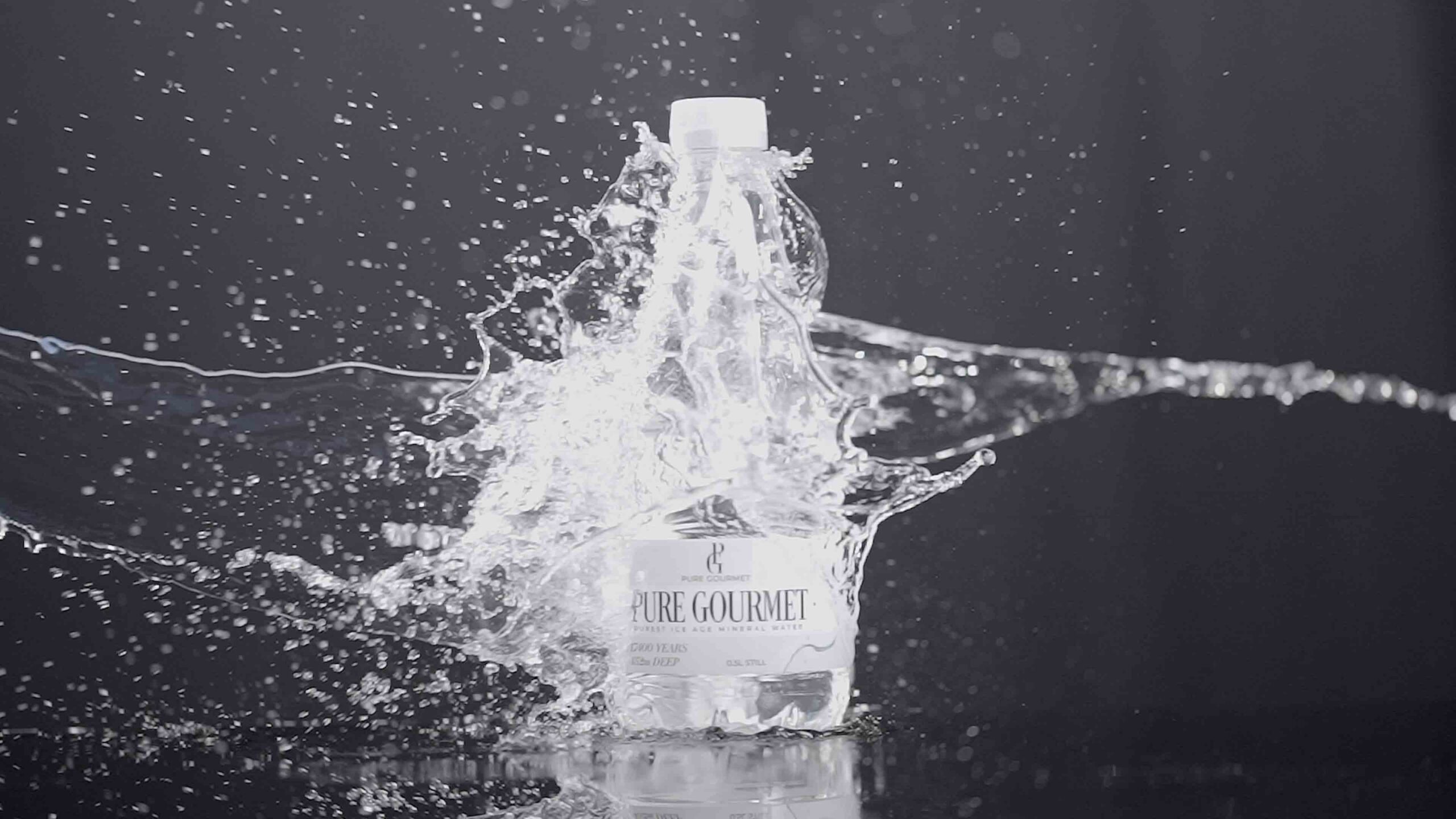At Pure Gourmet Water, we provide an elite standard of mineral water that provides an easy way to recharge the body and mind at once. However, while our mineral water is regarded as an excellent source of hydration for all, there are many other forms of water in the world.
Whether you are simply looking for water to drink or you are looking for water for a specific purpose, the different types of water can be quite confusing. To help you understand the different kinds of water, we’d like to have a look at your options below.
What Are The Different Types Of Water?
Water comes in various forms, but what are the main differences between each type?
 Tap Water
Tap Water
The most common form of water that people use, tap water, is what we typically use for things like doing the dishes at home. Tap water is the cheapest source of gaining access to drinking water, though, in some countries, tap water quality needs to be more consistent to be a viable source of day-to-day drinking water.
There are various examples of tap water being contaminated or damaged in a region – Flint, Michigan, in America, is one of the most high-profile examples of recent years. Many homeowners purchase a home filtration system to help cleanse the water to make it safe(r) to drink.
Spring Water
Spring waters are increasingly common today and come from regularly available sources. Spring water is typically bottled water, though, so you will need to ensure you properly recycle the plastic when you finish using these bottles.
Depending on how much spring water you drink, this could become an expensive alternative to using tap water. Some spring water can be raw, too, which means that you should do some reading into it to make sure that it is not going to cause you any potential health issues.
Distilled Water
Another form of water is known as distilled water, which is first boiled, and then the steam is taken from the boiled water. The steam is then condensed back into a liquid format. Distilled water is among the rarer water types you will find out there, and it lacks the vitamin and mineral intake of other forms of water.
However, for those in rural settings where tap water cannot be accessed and/or is contaminated, using distilled water can be a suitable alternative for a short period. Be warned, though, that drinking large quantities of distilled water can mean that your body starts to pull minerals from elsewhere – namely your teeth – to fill in the mineral gap that your water is not providing.
Purified Water
Another water source that is increasingly common today is purified water. It is typically a source of groundwater that has been given special treatment. This should help to remove things like parasites and bacteria within the water. It would therefore be safe to consume, meaning that many forms of water that would otherwise be dangerous to drink will be safer.
However, while purified water is a very useful resource, it removes many of the beneficial add-ons included in many forms of mainstream water. For example, the fact that you would not receive fluoride from the water means that you would need to find another source of fluoride for your teeth.
Purified water is also quite expensive, so it might be one of the most costly ways to get your daily water intake. For those in certain situations, though, it might be this or nothing.
 Mineral Water
Mineral Water
Mineral water is one of the most commonly used forms of water today and is taken from a mineral spring in the ground. They are typically rich in minerals such as calcium and magnesium. Generally, mineral water is seen as one of the most beneficial from a health standard.
Mineral water is a great choice if you are looking for something that you know is safe to drink and comes with key minerals you might not be getting from your food. When used as part of your diet, you can help balance out your mineral intake and ensure your body is getting all of the goodness it needs.
Mineral water is the best place to start if you want to drink the best quality water. Yes, it might cost more than buying other forms of water, but the overall quality of the end product makes it worthwhile. And while you could often receive the same minerals in mineral water from your diet, many of us need to eat a varied enough diet to guarantee this.
Given the importance of magnesium and calcium to our bodies, receiving it from a source of water can be one of the best ways to look after yourself.
Alkaline Water
A different but increasingly common source of water today is known as alkaline water. This differs from other water in that it tends to have a higher pH level than typical tap water. It also tends to contain alkaline minerals that you would not get from a typical water source.
There are many purported health benefits of alkaline water, many of which are yet to be proven, but some feel comfortable drinking this to help balance out the pH of their body. Since it could reduce stomach acidity, you need to avoid drinking too much alkaline water as you can reduce your body’s ability to fight off and kill off harmful bacteria.
Choosing The Right Water Source
There is no ‘right’ option as we all need to get water from where we can. For the most part, though, you will find that if you want to make the best option from a health perspective, you should look at mineral water.
Yes, it costs more, but the results and the benefits tend to outweigh the other options. Given many households need to invest in treatment solutions to use their tap water in the first place, buying mineral water can be the safest – and most helpful – solution from a health perspective.

